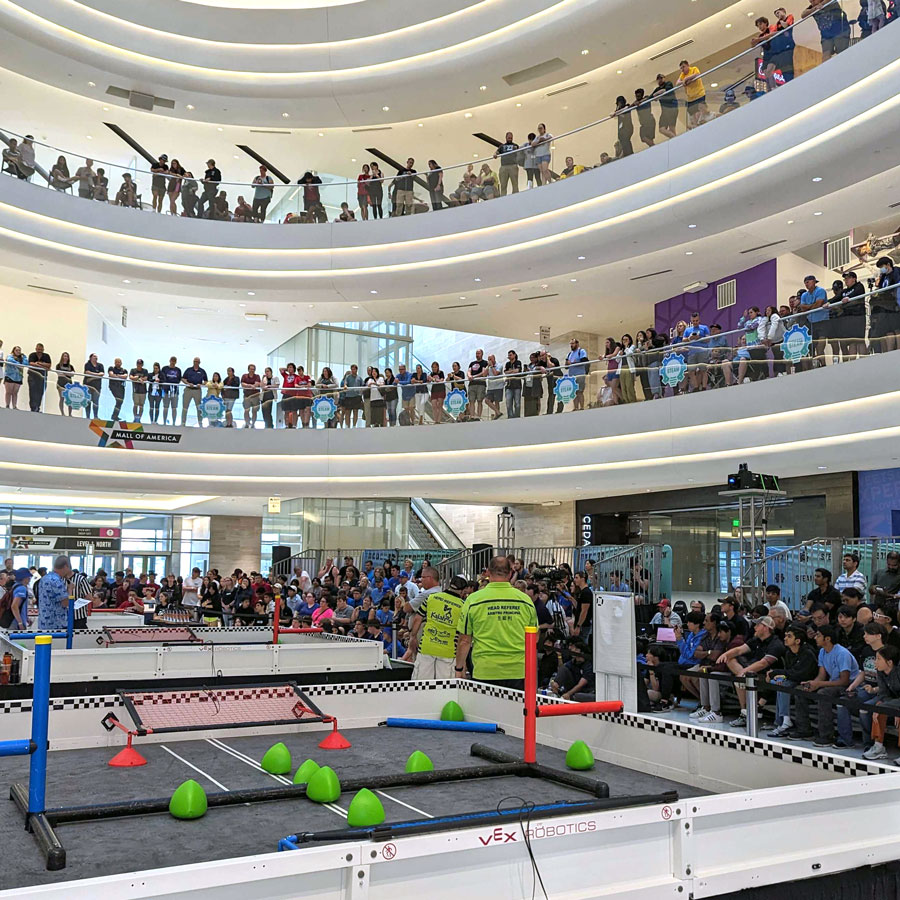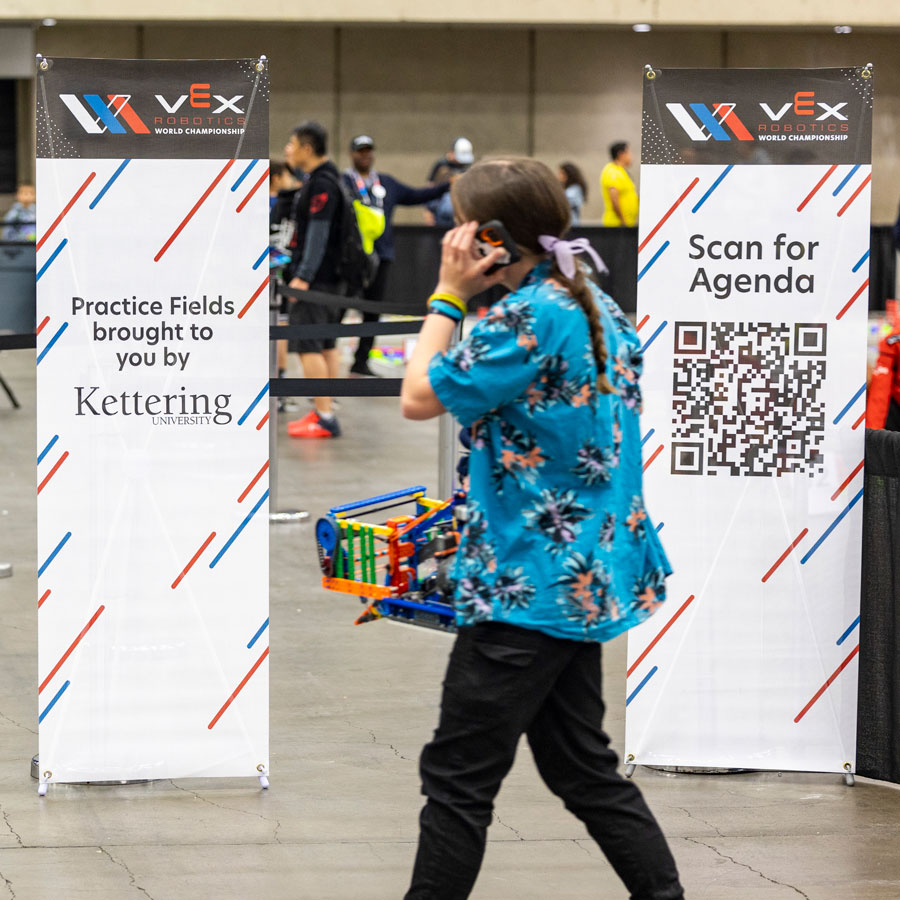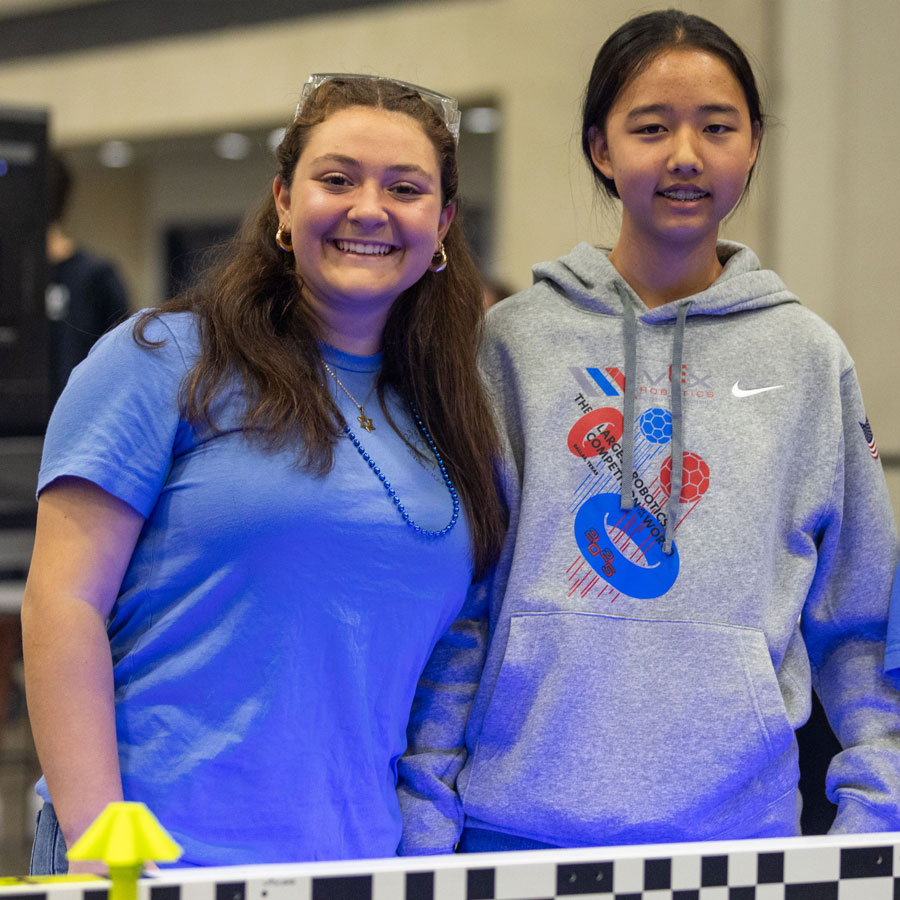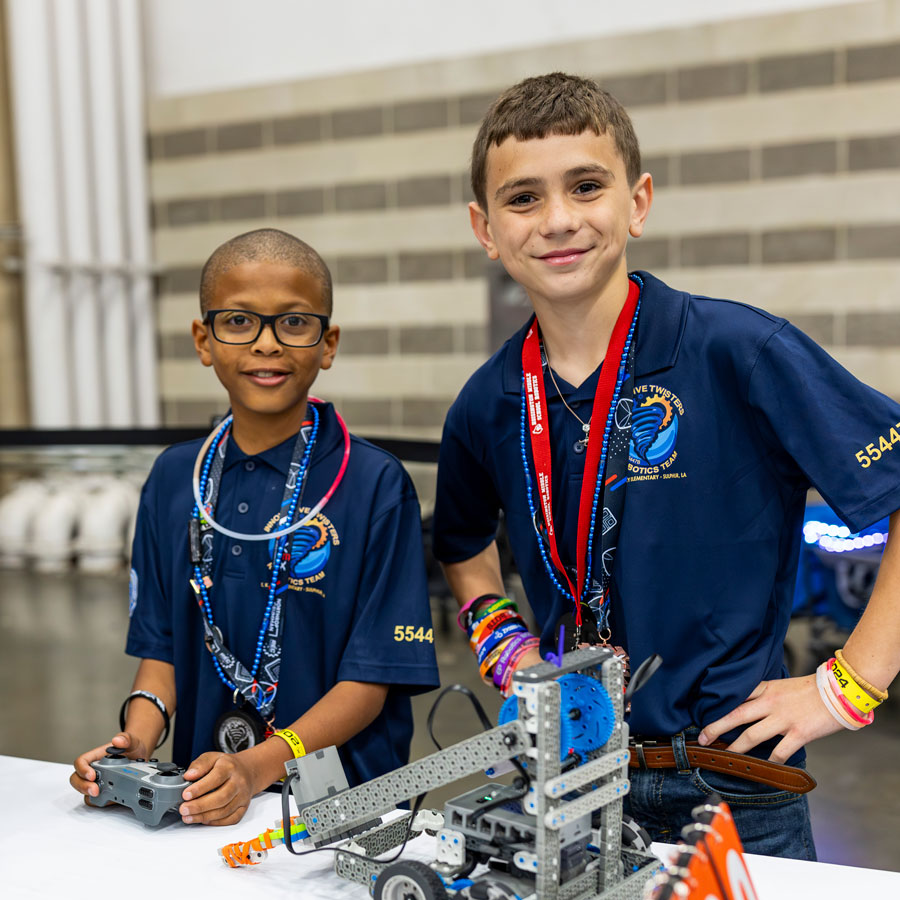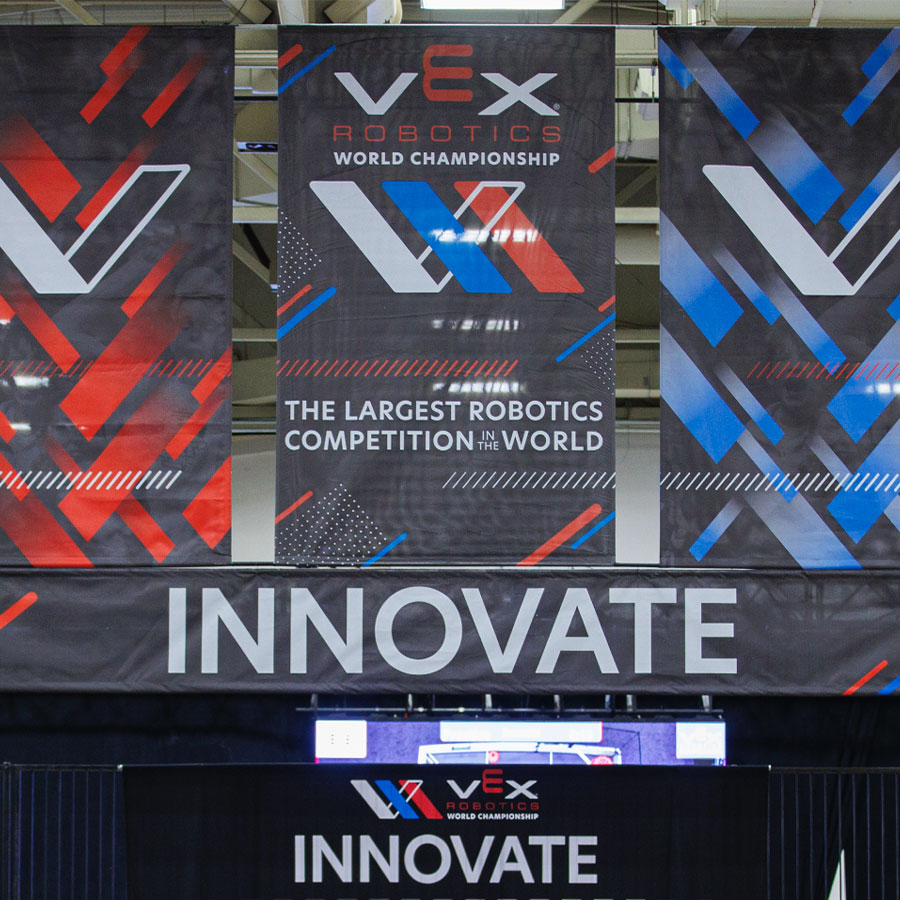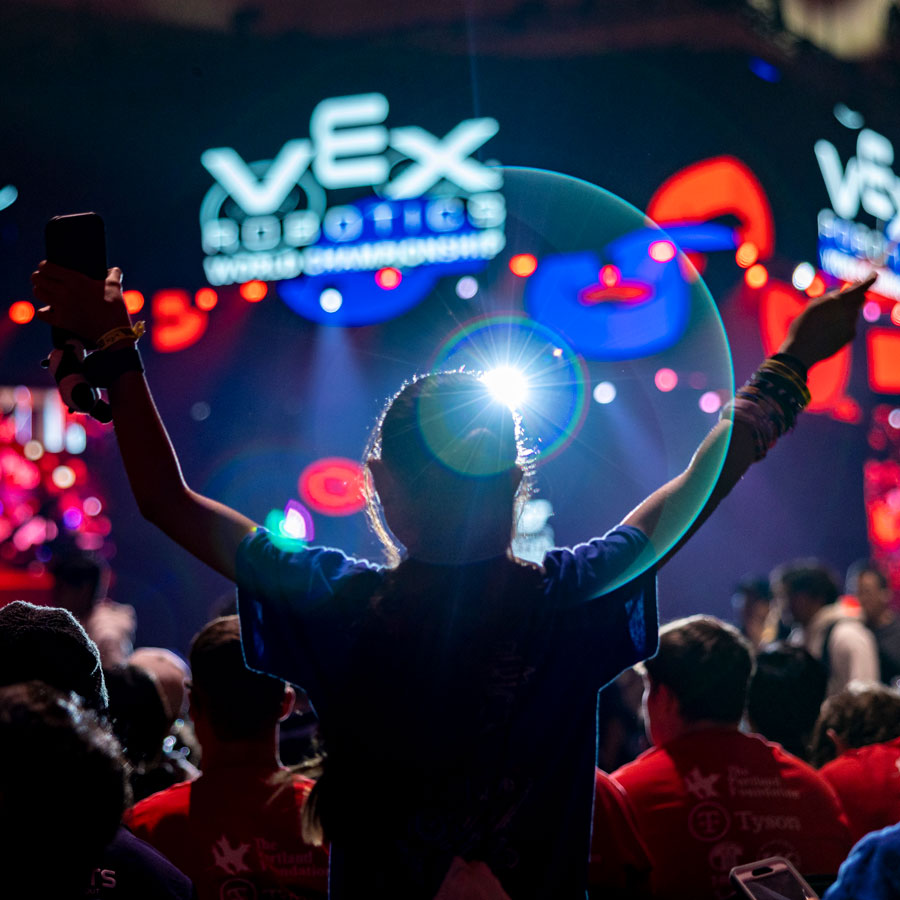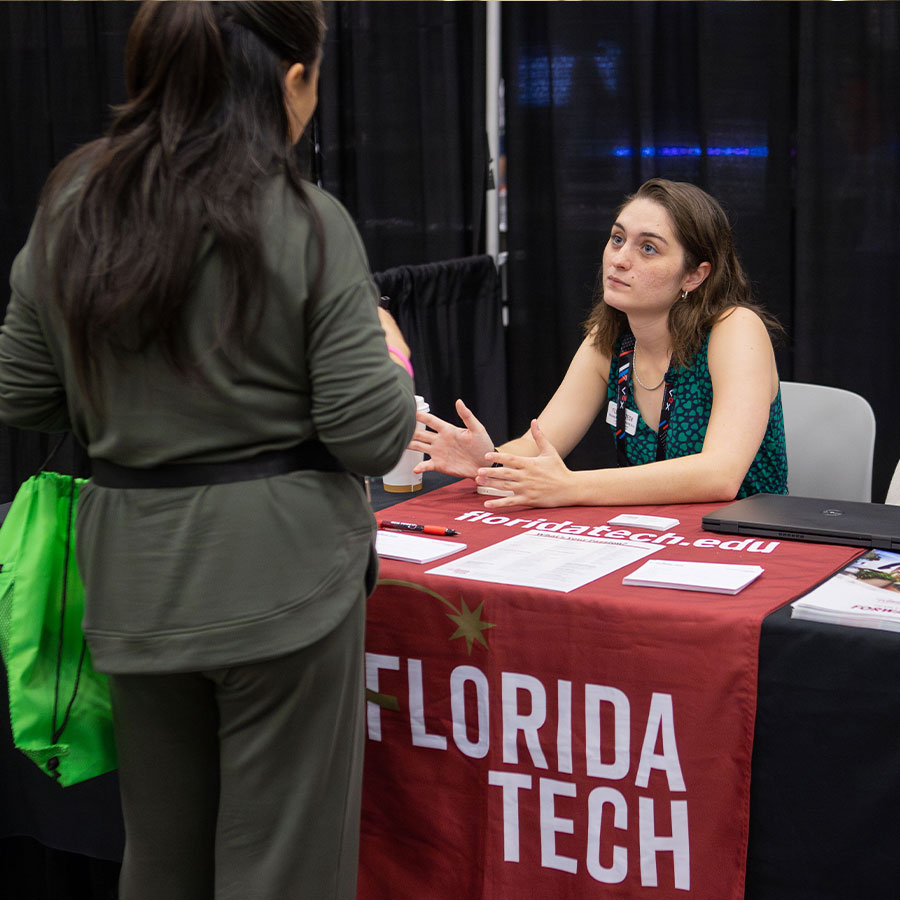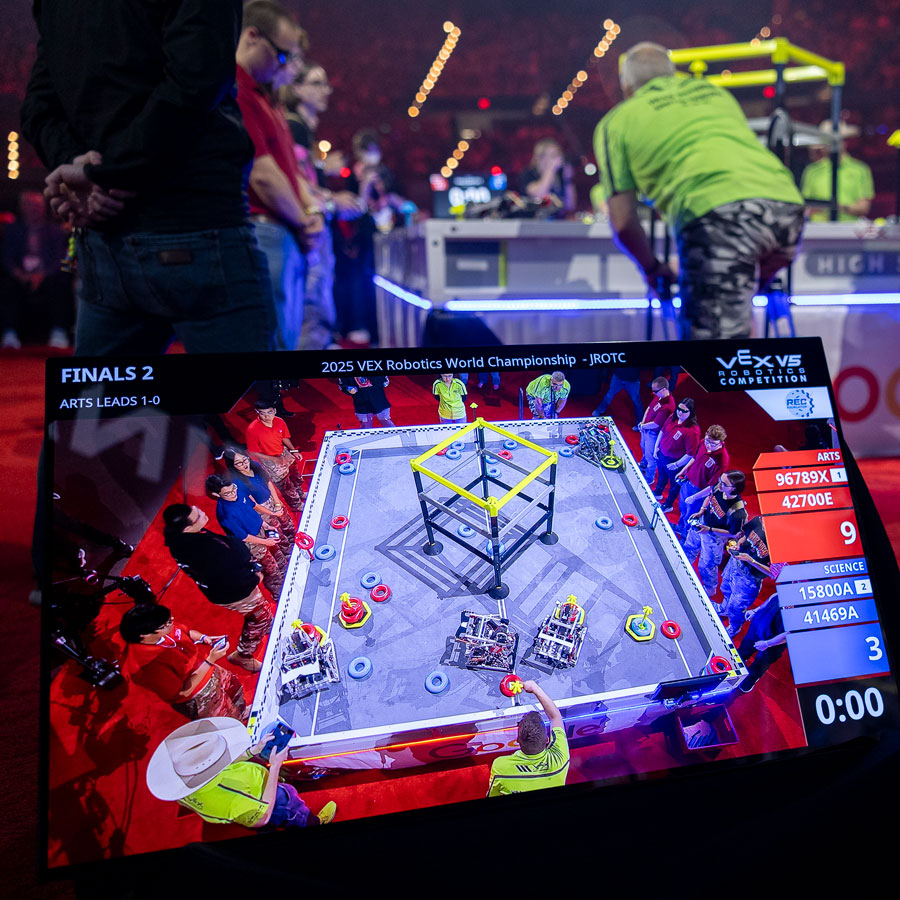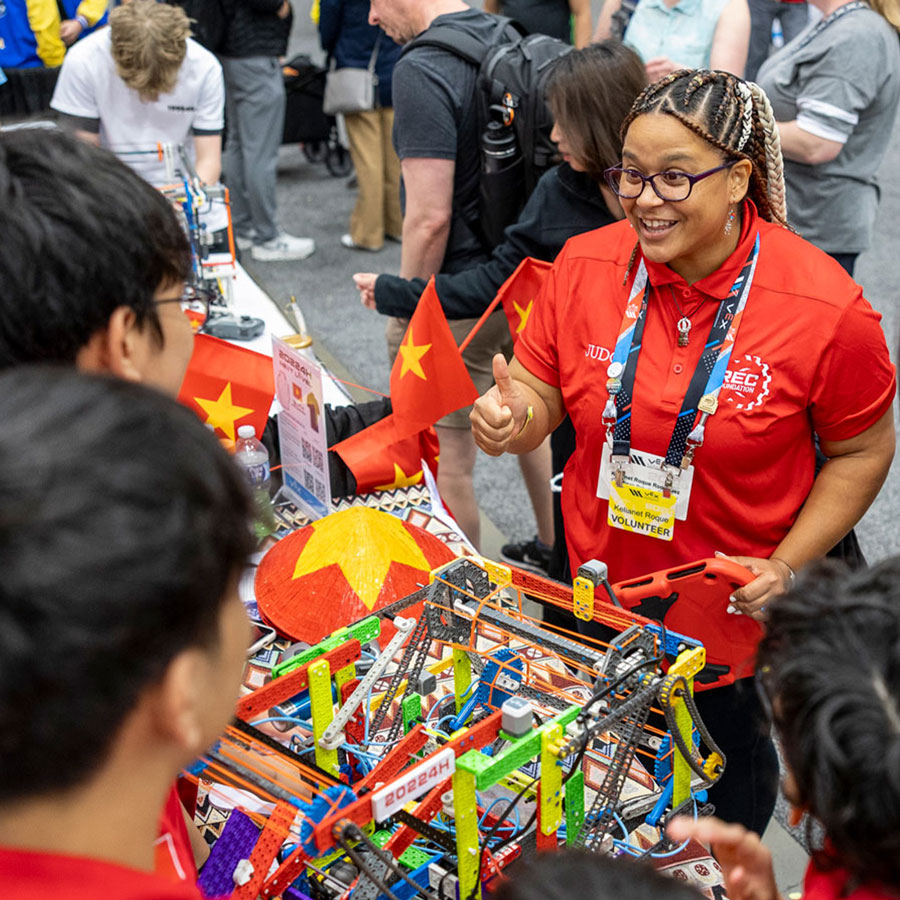

At the 2019 VEX Robotics World Championship, the REC Foundation announced the Student Advisory Board (SAB) to provide students that participate in the VEX Robotics programs an opportunity to share their experiences and give feedback. The SAB would consist of a diverse cross section of engaged VEX Robotics students from throughout the world. In the years that followed, the SAB has become a valuable sounding board for the organization. Meeting virtually once a month, students discuss a wide variety of topics, ranging from the criteria for judged awards to the student code of conduct, making recommendations for improvement along the way. With RECF CEO Dan Mantz as the primary sponsor (and present at the meetings), the SAB is a unique opportunity for students to interact directly as partners to the REC Foundation.
So, who is the Student Advisory Board? What inspires them? Most importantly, what are their plans after VEX? It may come as no surprise that robotics and computer science are at the forefront of many of their interests. Always an ambitious group, we spoke with three former SAB members who are pursuing both a computer science major at universities this fall, as well as an additional major. And those concurrent degrees…well, they couldn’t be much different from one another.

Stuart Vass (Computer Science Advanced/Psychological Sciences)
University of Adelaide
Australia
Stuart began his foray into competitive robotics his first year of college. An Australian, he found himself interested in STEM after teaching himself the Scratch programming language and felt that robotics would be the perfect avenue to explore his newfound passion for the sciences. After a four year stint on the Student Advisory Board, Stuart made the decision to pursue concurrent degrees in computer science and psychological sciences at the University of Adelaide.
Why psychological sciences? LIke many students his age, Stuart loves video and board games, but their appeal extends beyond a game pad or late nights spent trading resources in Catan. He looks at them as an ideal vector to study how to grab, and keep, an individual’s attention. “Video games were a nice medium because a lot of effort goes into keeping someone engaged in the game and directing them in a particular way to get them to do different things.” Stuart said. “So although I was looking at video games, you could then apply it to lots of things. Psychological sciences are a really good way of being able to, once I have the technological skill to program something, also have the skill to know how I can direct the user to get through a program the way that I want them to.”
He points to Nintendo’s original Super Mario Brothers and Zelda: Breath of the Wild as prime examples of this concept. “The original Mario game is a good example because it starts you on the left side and the player’s off center to the screen compared to being in the center, which naturally pulls the player to the right to start the game. Zelda: Breath of the Wild has been designed so that any direction you go in, you’ll find something”’ he continued. “So it doesn’t matter which direction you go in and it leads you through in particular paths and it directs you without you knowing, but you think you’re choosing freedom.”
As for his plans to bring his two passions together post college? Stuart isn’t quite sure yet, but he knows that his skills will be particularly valuable when it comes to product design. Making devices easier for anyone to pick up and use is at the forefront of where he believes he will be after graduation. “The most popular devices also have to be the easiest to use.” Stuart said. “You’ve got really technical devices that are only used by electricians or have doctorates in computer science, whereas the phones we use every day are designed to be as easy as possible to use by the most number of people. So the design does influence how many people you can then use it and buy it.”
While we’ll have to wait and see where life takes Stuart, in the meantime you can check out one of his own creations that is, surprisingly, not a robot. Head over to Steam and check out STACK and the Grumblepuff from Above, produced by Stuart and his game studio, Charmful Games.

Diana Gale (Computer Science/Piano)
Seattle Pacific University
Seattle, Washington
Diana found robotics as many students do, following in the footsteps of an older sibling. After watching her brother (now an aeronautics engineer) excel in VEX programs, she decided to get into the game herself. Fueled by a natural curiosity, she found joy in the project management aspect of the program, gravitating towards engineering notebooking. Seeing that many notebooks were often clinical and dry, Diana felt that she could make her notebook into a work of art in its own right, while documenting the engineering design process along the way.
Even as she strove for beauty and creativity in her notebooks, Diana realized they had to be functional as well. She describes it like this: “The more moving parts that you have, if you have to manage an aesthetic as well as all the content, the more brainpower it takes to be like, how am I going to organize everything? But then also the art served for me as a color coordinating system” she explained. “So I organize everything by the engineering design process. Then for each little step I would have a different color, and then for different sections I’d have different formatting. Not only did it look put together, but it helped my organization system as well.”
Notebooking, combined with the coding she learned through VEX programming, led her to the decision to pursue a computer science major. Even so, Diana’s love for art extended well beyond the engineering notebook or the computer keyboard, spilling into the world of music. A pianist for the last 12 years, her passion for music began as a young child, where she would stand outside the door of her brother’s choral practices, soaking in the harmonies emanating from just inside. After joining a friend for piano practice, she was hooked.
Still, one might think that computer science and piano couldn’t be farther afield from one another. Not so, says Diana. “Apparently [music and computer science] work the same part of your brain, which is interesting because I think of them in a very similar way. In piano, especially in classical music, there’s a bunch of different forms and stuff” she said. “So you can have Rondo form, you could have three different sections, and then you just alternate. That’s popular in a lot of Brazilian traditional music, but there’s a lot of different logical systems and patterns that are very similar between the two and they’re super useful.”
When asked where one finds the courage to combine two seemingly disparate academic pathways, Diana doesn’t hesitate: “Just jump in and breathe” she says. “For the past couple of years, I’ve been doing this cold water challenge where I would go to the river in early April when it’s freezing and I would jump in and I would force myself to swim around for a little bit until I got used to it” she went on. “And this really helped me be more confident in other areas of my life as well, because even if I was unsure or afraid at first, I would remember that it’s just in my head and I’m probably over imagining the situation anyway. So I would go into the situation and do my best and breathe through it. And even if it turns out terribly, it’s just one experience, right?”

Yasmeen Galal (Computer Science/Government)
Harvard University
Boston, Massachusetts
Yasmin fell in love with robotics through the VEX IQ Robotics Competition. In eighth grade she joined a team in her hometown of Prospect, CT and never looked back, competing in the VEX V5 Robotics Competition through high school. Initially interested in notebooking through VEX IQ, VEX V5 further cemented her passion for STEM through ample opportunities to code autonomous sequences. For Yasmin, however, it wasn’t just the engineering aspects of VEX competitions that led to her acceptance at an Ivy League university, it was the “soft” skills as well.
“I would say communication and teamwork were a huge skill that I developed through vex. I think there were, of course, going to be disagreements on the team and being able to work through those is a skill that I will definitely be using not just in college, but my whole life” she said. “In addition to that, I think working under pressure or problem solving in very high stress situations is really the most important skill that I’ll be carrying over with me into college.”
Just as VEX competitions led Yasmin to pursue a computer science degree, her love for advocacy work drew her to the Student Advisory Board, and later a double major in Government. She told us that “I saw that there was an opportunity to be on a board where I could take my experiences with robotics and apply them to help other students and to make potential changes in how the REC Foundation approaches robotics. And that was just a really exciting way to combine my passion for student government and other organizations where I get to be a voice for students.”
And her advocacy work did not stop at the REC Foundation. Yasmin also served on the Connecticut Board of Education, where her responsibilities included serving as a voice for 500,000 students attending school in the state at state board meetings. There, she would give input on legislation before it was enacted. It was there that she discovered how entwined computer science and the machinations of government truly were. Yasmin felt that lawmakers often had little understanding of the technology that they were legislating for, and she now sees possibility in a “tech translator” role.
“I do see myself working with a tech company potentially and helping them develop their technology, but then also explaining to policymakers how that technology works, because I think a big issue is making sure policymakers understand how technology works” she said. “A lot of policymakers who I’ve talked to have said, I’m too old for this. I don’t understand how this works. And so I’m hoping to be one of those people who helps develop it, but then also helps explain it so that they can properly make policies around it.”
As Stuart, Diana, and Yasmin all begin this next chapter of their lives, we wish them the best of luck as they explore their passions. Thank you for your service to the REC Foundation, and we hope to see all of you as alumni at future events! For more information on the Student Advisory Board and RECF programming, visit recf.org.
